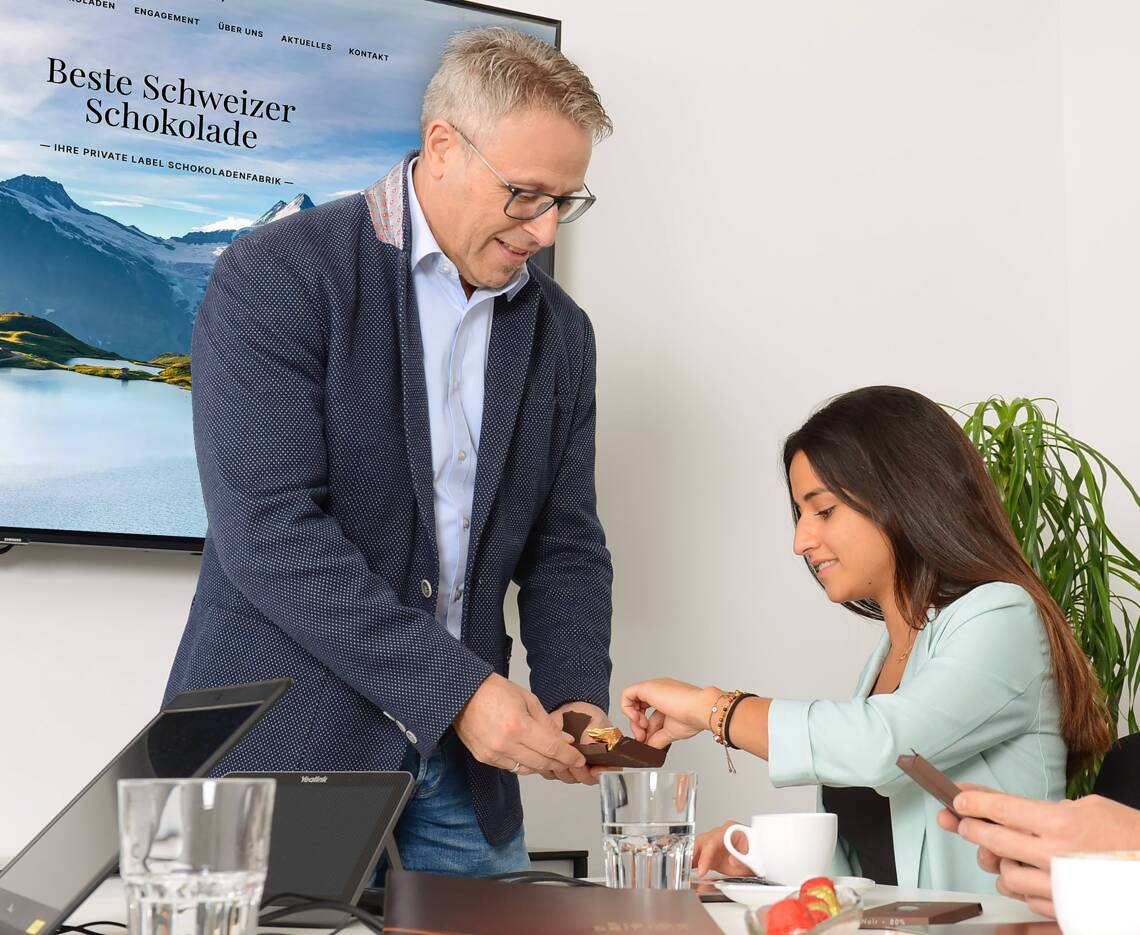Cocabo and the EUDR
In the lush landscapes of Bocas del Toro, Panama, the Cacao Co-operative of Bocatoreña (COCABO) has been a pillar of the local community since its founding in 1952. With over 1,400 small-scale farmers, primarily from the Naso and Ngöbe indigenous groups, COCABO is the oldest cooperative in Panama. The cooperative manages nearly 4,400 hectares of organic farmland, producing high-quality cacao alongside bananas, pineapples, and citrus fruits. Their dedication to sustainable farming practices not only preserves the environment but also enriches the lives of the local farmers. COCABO’s origins are deeply rooted in the collective efforts of visionary local farmers like Ambrose Gallimore and Elridge McKnight, who saw the potential of uniting smallholders to reach international markets.
COCABO's proximity to the Amistad International Park, Central America’s largest nature reserve, places the cooperative at the forefront of conservation efforts. This UNESCO World Heritage site is rich in biodiversity and vital to global ecological health. Many of COCABO's farmers live and work within the ecological buffer zones of the reserve. By promoting sustainable farming practices, such as cocoa agroforestry, COCABO encourages alternative economic development to activities that contribute to deforestation, like logging. Additionally, COCABO provides assistance to farmers in improving crop yields without further encroaching on protected areas.
Many of COCABO's farmers live in remote, isolated areas. When they first heard about the European deforestation regulation, which requires them to geo-locate all their cocoa farming areas via GPS, they were understandably skeptical. After all, they are the ones who depend on the forest and work hard to protect it—why should they have to prove this to a distant entity like the European Union? Despite many international projects emphasizing the importance of forest conservation, these farmers have yet to receive adequate recognition for their efforts. Some farmers fear that geo-locating their fields could lead to others claiming ownership of their land, putting their livelihoods at risk. Who will safeguard their data and privacy rights? Others wonder if they might be unknowingly observed through satellite imagery as they work. "Vamos a salir en una peli, sin saberlo?" ("Will we be in a movie without knowing?"), they asked us, laughing.
In August, Manuel Holzer, our Head of Sustainability, visited COCABO to meet with the farmers and address their concerns about the EUDR. In a workshop attended by 40 farmer delegates, he provided a detailed explanation of the deforestation regulation and the technologies used for its implementation. Manuel Palacios, COCABO's managing director, translated the presentation and discussion into the local indigenous language. Although all the farmers speak Spanish, the technical jargon and complex language used in such regulations can feel like a foreign language to them. This visit and workshop were crucial, as they reassured the farmers that their concerns and fears are being heard and taken seriously. In the end, it is mutual trust and respect that form the foundation of the long-term relationship between Stella Bernrain and COCABO.
Stella Bernrain is committed to supporting COCABO as they meet the EUDR requirements. We are financing the digital tool Abunda+, which enables the cooperative to efficiently and systematically collect geodata for their farmers' cocoa plots. Additionally, we are providing financial support to hire the extra staff needed to visit each farm and take the necessary GPS coordinates.
This visit reinforced our admiration for COCABO and its members. The cooperative's resilience in facing regulatory challenges while continuing to support its community and the environment is truly inspiring. We are proud to partner with COCABO and look forward to continuing our work together to bring exceptional, ethically sourced chocolate to the world.
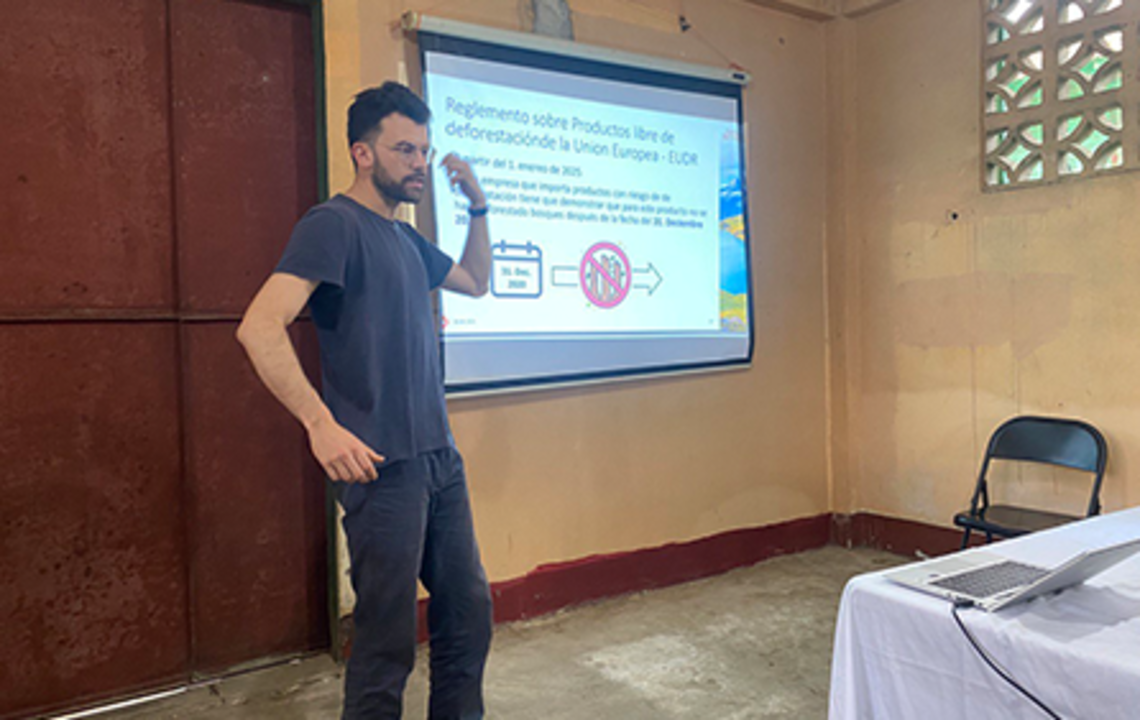
Manuel Holzer explaining the EUDR to the Farmers of COCABO.
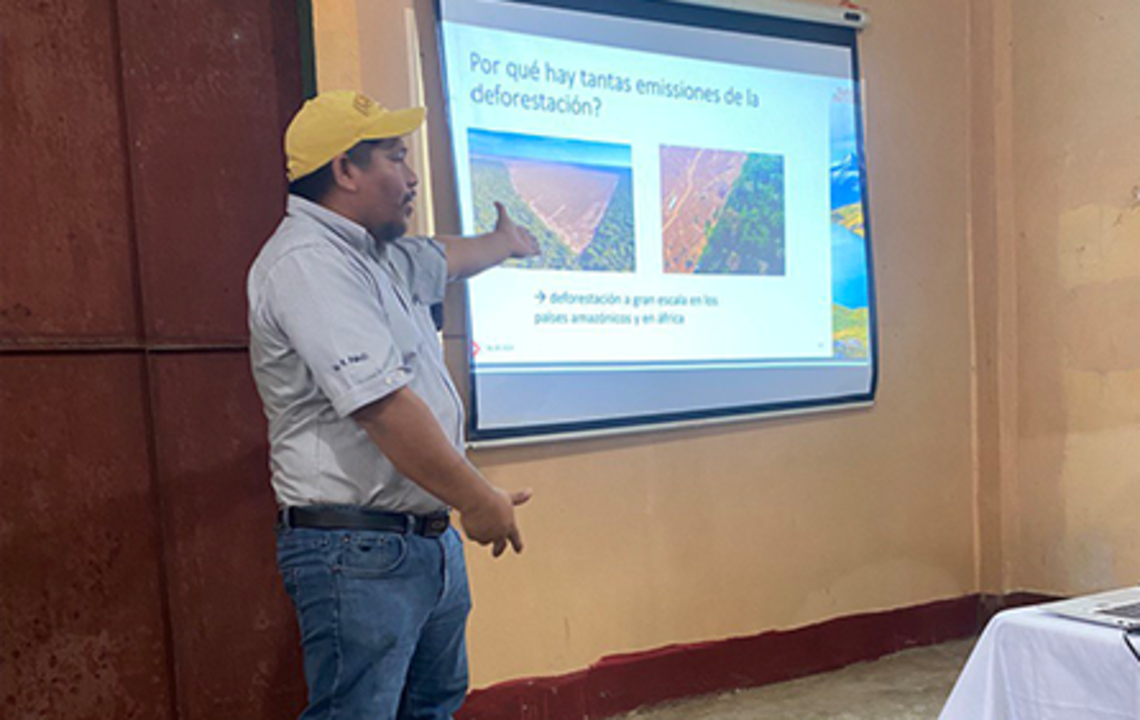
Manuel Palacio – COCABO's managing director translating the EUDR presentation into the local indigenous language.
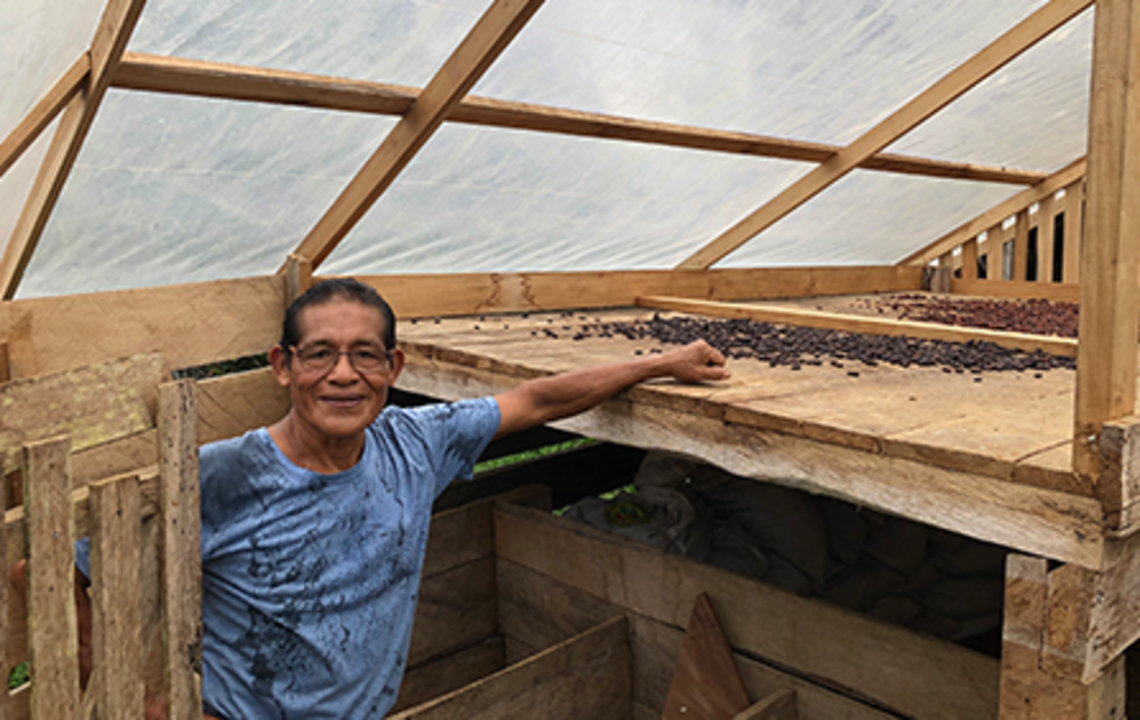
Jacinto Rodriguez and his cocoa drying facility
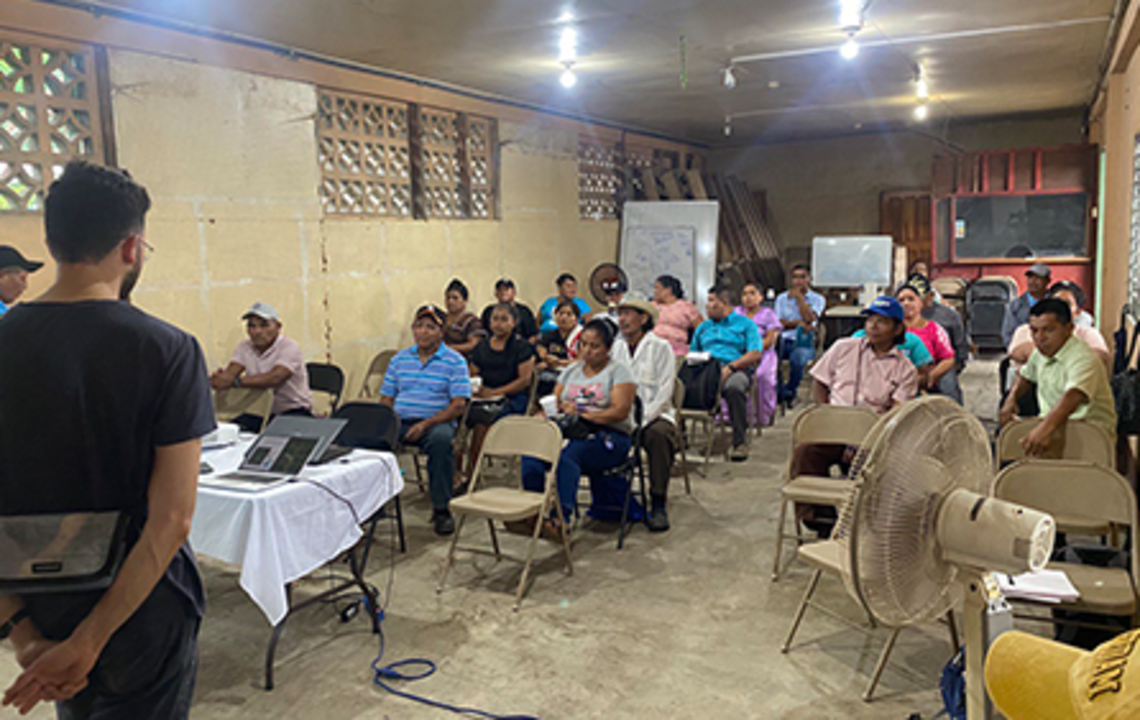
The delegation of farmers discussing with us the EUDR.
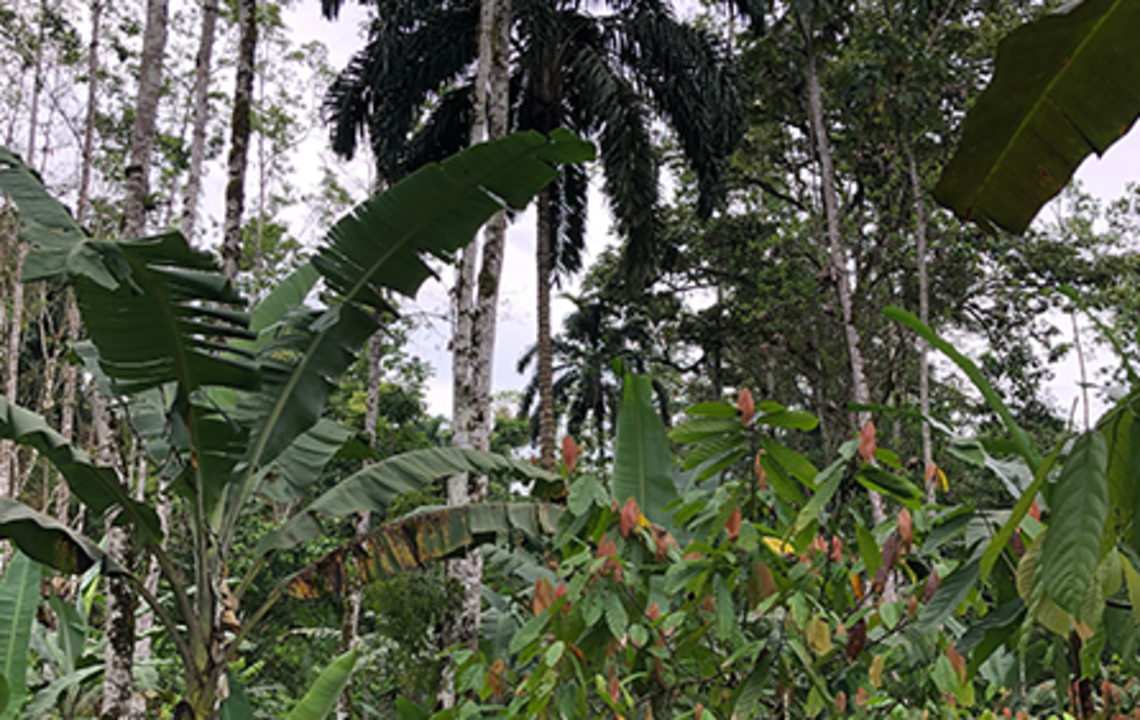
Cocoa Agroforestry system worked by Jacinto Rodrieguez
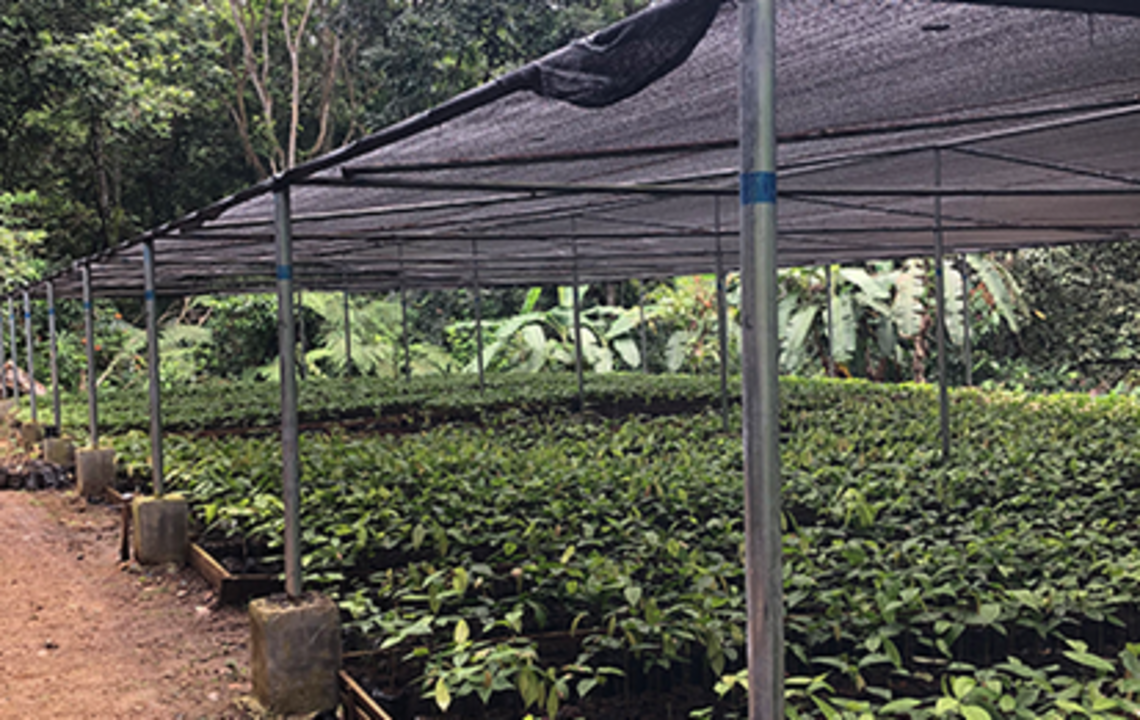
COCABO's cocoa seedling nursary from where they provide farmers with productive and disease tolerant species.
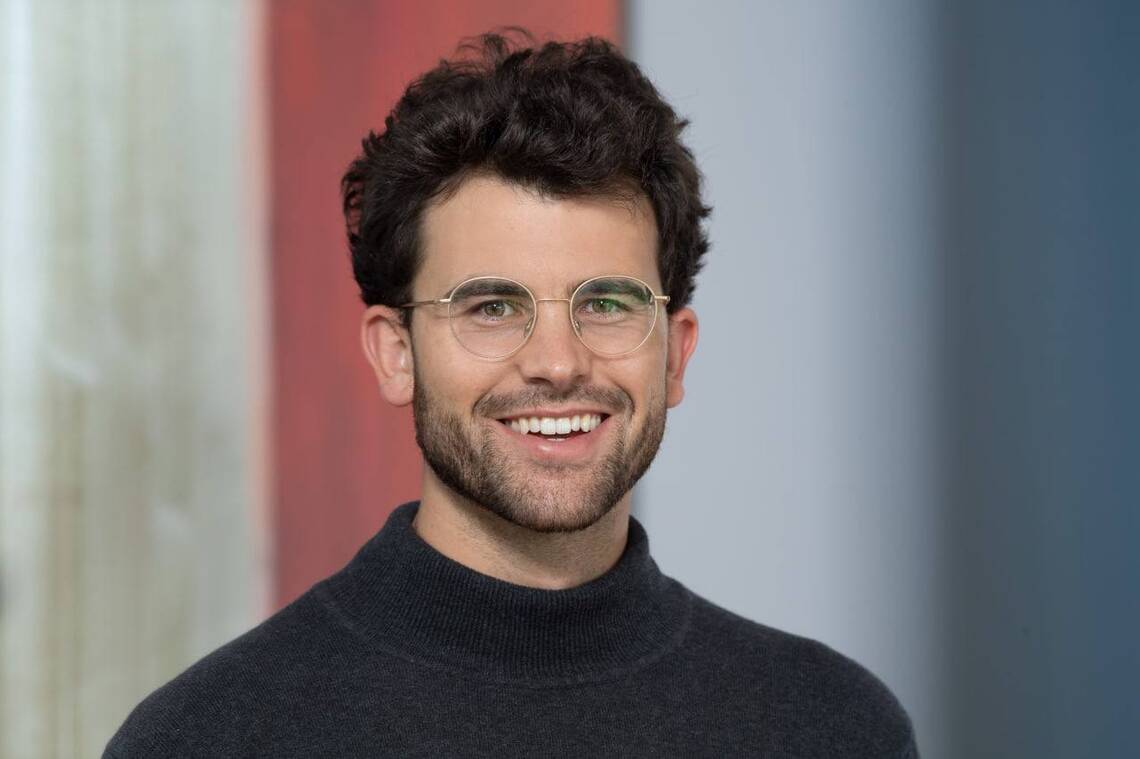
Author:
Manuel Holzer
Head of Sustainability

